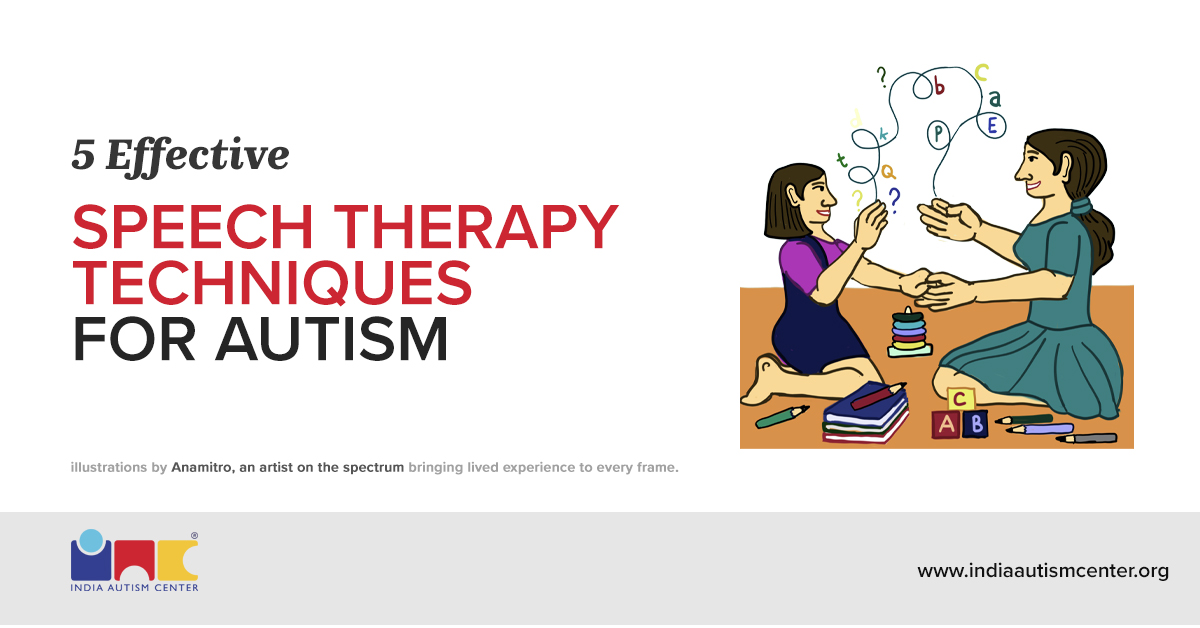Introduction
A study conducted in the US, between 2006-2016, with 4000+ autistic children showed that – only 47% of them had received early autism spectrum treatment.
But, early detection and early intervention are important for individuals with autistic spectrum disorder. It has long-term positive effects on them and improves their quality of life. Early interventions also help them lead an independent life in many cases.
In this blog, we will discuss what early intervention is. We will also go over why timing is so crucial for autism treatments.
Understanding autism spectrum disorder
Autism spectrum disorder (ASD) is a neurodevelopmental disorder that affects how a person understands and interacts with the world. It’s said to be a spectrum because it has a wide range of symptoms and levels of severity.
Some children with ASD face challenges with communicating and expressing themselves. At the same time, others struggle with how to behave in social setups. The diversity within the spectrum makes early diagnosis and personalised autism spectrum treatment even more essential.
More than 18 million people in India have been diagnosed with autism spectrum disorder. With such a high prevalence, understanding the importance of early intervention is critical. It will benefit parents, caregivers, educators, and society as a whole. We can build a more inclusive and accepting environment the more we understand different aspects of ASD.
What is early intervention?
Early intervention is a term that refers to the treatments, therapies and support that children with developmental delays or disorders need.
These services are specially made for children below the age of 3. However, some programs extend to older children as well. Their goal is to address developmental disorders such as autism – early, reducing their impact on the child’s overall development.
Autism spectrum treatments come in many forms, depending on a child’s specific needs. Behavioural therapy, speech therapy and occupational therapy are some examples.
The importance of timing
In the first 2-3 years of a child’s life, their brain grows very rapidly. In fact, it develops 80% by the time kids turn 3. During this time, the brain is highly capable of forming new connections and taking in new information. So when interventions are provided early, children with an autism diagnosis can take advantage of the brain’s natural ability to change. This guarantees improved behaviour, communication, and social skills.
For example, consider a child who begins therapy soon after being diagnosed with autism at the age of 2. They will go through consistent speech therapy, behavioural training, and social skills development. This child learns to communicate more effectively, understands social cues better, and becomes more independent in daily activities. By the time they start school, they are better equipped to interact with classmates and participate in a classroom setting. This gives them an inclusive and fulfilling educational experience.
Early intervention is not just about addressing current challenges. It lays the foundation for a more successful future. Children who receive autism spectrum treatment early on lead more independent and socially engaged lives.
Challenges and barriers to early intervention
Despite the benefits of early intervention, many children with ASD don’t get access to these services.
One significant challenge is late diagnosis. A child’s family might not recognise the early signs of autism. So they don’t get the child to a doctor in time. Delays in diagnosis mean delays in starting treatment. This can have a lasting impact on the child’s development.
Access to services is another barrier. In most rural areas early intervention programs may be limited or have long waiting lists. Even financial limitations can be a reason. Not all families have the resources to afford private therapy if public services are unavailable or insufficient.
Additionally, the stigma surrounding autism can prevent families from seeking help. Many fear societal judgement and isolation
Conclusion
Early intervention can effectively treat specific challenges associated with autism, providing crucial support that enhances developmental outcomes and fosters greater independence. By starting therapy during the critical early years of brain development, we can help children with ASD build the skills they need to navigate the world more effectively. The timing of intervention is crucial—it’s not just about what is done, but when it’s done. Parents, caregivers, and professionals must be vigilant in recognizing the early signs of autism and seeking help as soon as possible.
If you suspect that your child or a child you know might be on the autism spectrum, don’t wait. Early intervention can make a difference, offering not to treat but to improve the quality of life.






